Shanessa Gluhm's Blog
January 22, 2024
A Woman of Many Voices: Interview with an Audiobook Narrator
On the eve of the audiobook release for A River of Crows (produced by Tantor Media), I thought it would be fun to share a behind the scenes look at the recording process. I reached out to the extremely talented narrator Jessica Marchbank (AKA Lu Banks), and she agreed to be interviewed for my blog. ( You can find notes from me in the photo captions).
Let’s get started!
 The Woman Behind the Curtain, Jessica Marchbank aka Lu Banks. Image from: https://www.allusionsaudios.com/
The Woman Behind the Curtain, Jessica Marchbank aka Lu Banks. Image from: https://www.allusionsaudios.com/Can you share a little bit about your professional background?
While I’ve only been producing audiobooks for the past couple of years, I’ve been using my voice professionally, in one way or another, since I was a teenager. Fun fact – my first job was as a tour guide at the Jesse James Farm & Museum in my hometown, which was the first time I really felt what it was like to have an “audience.” Then I went to a performing arts high school that was modeled after the one in Fame. I double-majored in vocal music & creative writing, with a minor in piano. For a while, I was in serious pursuit of singing, and got a full scholarship to university for singing. Life has other plans though, as they say, so for much of my adult life I wasn’t as connected to that artistic background.
For years and years, people would comment on my voice; I didn’t really have a direction, and other than singing internet karaoke, I was just really disconnected and discontent. Then in late 2019, I stumbled upon the wonderful world of erotic audio, via Reddit’s r/GoneWildAudio. It blew my mind. I heard about it on a podcast. That very same day, I started a new Reddit account, downloaded an erotic script, recorded it on my phone, and posted it. Turns out, I had a real knack for it; within 6 months, I had a huge fan following and performed live audio scripts via my Discord fan server, and began doing a deep dive into microphones, mic technique, sound treatment, audio editing … the works! Realizing there were different things I could do with my voice opened up a whole new world.
I began seriously researching audiobooks in 2020 and spent a solid 18 months learning everything I could; coaching with some established pros, consulting with sound engineers to get the best possible sound, building a recording booth. My first audiobook went live in spring 2021 and I’ve never looked back – always learning & growing, but absolutely grateful to have finally found “the thing” that lets me fully engage my voice, creativity, heart, and mind.
What is the audition process like for an audiobook?
It depends on a lot of factors. Most of my work these days comes from Tantor (I love them!) and so they’ll either send me a book that’s mine for the taking if I want it, or they’ll send me a request for a specific sample for a title they’re casting. I’ll scan the title, record a 3–5-minute sample, and send it off. Sometimes I hear back right away – yes, you’ve got it! Or no, we went in another direction, and sometimes months pass before I hear anything. Most narrators who are first starting out will go through ACX (Amazon Content Exchange), as I did, which is like a huge Wild West dating/match site to match narrators with authors & rights holders. It’s a great place to get started, and I still occasionally scan it for possible titles.
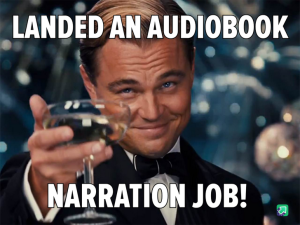 Tantor sent me a clip of Lu reading a sample of my book for approval, and it was an easy YES. She was fantastic!
Tantor sent me a clip of Lu reading a sample of my book for approval, and it was an easy YES. She was fantastic!How do you decide on the specific voice and tone to do for each character?
Great question! For me, it’s part art, part science, and part …just intuition/feeling. I read the book first, of course  cover to cover, and sometimes going back again to take notes. For A River of Crows, I read it at least a month before beginning recording; I wanted to let the story & characters really sink in. Then, I have a whole spreadsheet I use for each title I work on; it’s very nerdy – so on the data side, I track everything: how many pages per chapter, how long it took me at the mic to record that chapter, an average # of minutes per chapter, etc.… which probably seems like overkill, but I’m a data nerd and I love to see the trends over time. Then on the creative side, I make detailed notes about each character – even if it’s someone who only appears once or twice – and anything I want to watch out for at different points of the story. For instance, I note any characteristics that are written about the character, but then I also give it my own frame of reference: who in my life does this character remind me of? Who do I picture when this character is talking? (For whatever reason, I totally pictured Sloan as the actress Marin Ireland, although I don’t think Sloan actually looks anything like her. There was something about Sloan’s fortitude mixed with vulnerability that totally made me picture Marin).
cover to cover, and sometimes going back again to take notes. For A River of Crows, I read it at least a month before beginning recording; I wanted to let the story & characters really sink in. Then, I have a whole spreadsheet I use for each title I work on; it’s very nerdy – so on the data side, I track everything: how many pages per chapter, how long it took me at the mic to record that chapter, an average # of minutes per chapter, etc.… which probably seems like overkill, but I’m a data nerd and I love to see the trends over time. Then on the creative side, I make detailed notes about each character – even if it’s someone who only appears once or twice – and anything I want to watch out for at different points of the story. For instance, I note any characteristics that are written about the character, but then I also give it my own frame of reference: who in my life does this character remind me of? Who do I picture when this character is talking? (For whatever reason, I totally pictured Sloan as the actress Marin Ireland, although I don’t think Sloan actually looks anything like her. There was something about Sloan’s fortitude mixed with vulnerability that totally made me picture Marin).
So, before ever getting behind the mic, I try to get a feel for each character. Then, I start recording! It’s really interesting to see how well the characters emerge right away, versus when I have to feel around for them a bit. Sometimes, the first time I open my mouth to speak as a character, I instantly hear that it’s just how I wanted it. Other times, I have to experiment a little until I feel like it’s just right. Once I have it kinda “locked in”, I make notes about the vocal characteristics (accent, pitch, timbre, etc.) and then save at least a few sound clips of just that character, so if I’m ever stuck, I can find it really quickly.
 I think Marin Ireland would be a great choice for Sloan! Not only do I love her acting, but she’s an ambassador for my favorite nonprofit organization, The Innocence Project.
I think Marin Ireland would be a great choice for Sloan! Not only do I love her acting, but she’s an ambassador for my favorite nonprofit organization, The Innocence Project. Photo from: https://innocenceproject.org/team/marin-ireland/
 If you’re wondering who I pictured as Sloan while writing, it was actress Brie Larsen.
If you’re wondering who I pictured as Sloan while writing, it was actress Brie Larsen. (photo by 2d Lt Jessica Cicchetto)
How long did it take you to record A River of Crows?
I’m laughing at myself here because, even though it’s only been a couple of months since wrapping the recording, I’ve recorded a bunch of short romance books and it’s all in a haze. Luckily, I have my handy-dandy spreadsheet here, so ooph! I can see that, since the book was just a hair over 12 hours, my time at the mic was about 30 hours. I don’t really track how much time I spend on prep, just time in the booth, and usually I have about a 2:1 ratio of work time to finished time. This was a little longer because I wanted to really take my time with a few of the scenes, and I re-recorded a few sections. (If this makes anyone go “gasp!” – don’t worry; every single audiobook you’ve ever heard has had a TON of re-recorded sections. Narrators stop & start & go back all the time; God bless audio editors and engineers!)
 They come in handy!
They come in handy!Was there any specific scene you just loved to narrate? Was there a scene that was especially difficult to narrate?
SO MANY scenes were just so rich and felt awesome to narrate! One of the early scenes with Jay’s night terror was both difficult and exciting to do. The way you wrote it felt so real so I recorded it a few times; it’s super tricky to give big emotion / drama without also getting way too loud for the microphone (I have some hilarious bloopers of trying to sound like a crow crying “Ridge! Ridge! Ridge!”) The scene when Jay bursts in the door looking for Ridge, wild-eyed and panicked, felt almost effortless – the way you wrote the scene made it flow so easily. I love how easy you made for us, as reader, to connect with the characters and feel their pain, anger, despair, hope.
I apologize that I didn’t consider the future audiobook narrator when I put a talking crow in my novel.
How do you come up with different voices and keep them all straight?
Oops! I pretty much covered this up ahead, but one thing I had to really give a lot of thought and attention to was the age of the characters. For instance, a 10-year-old boy can sound all sorts of different ways – like a little boy, or almost like a teenager, so I took care with Ridge’s 1988 character. Most of the characters will only have subtle changes between the 2-3 different timelines, but Caroline needed more care. Without giving too much of the book’s twists & turns away, I treated Caroline’s character differently throughout the book/timeline. I didn’t want to start the novel with her sounding like she did by the end, so her voice changed the most throughout the story.
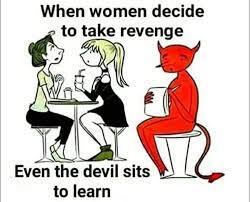 Caroline…if you know, you know
Caroline…if you know, you knowWhat’s a typical recording session like?
I tend to record in big long chunks, since my life is really full with nonprofit day job and single parenting. So I have to carefully manage my time. Once I have cleared my schedule, I turn off everything in my house that can be turned off: furnace, any fans, most lights. I make sure I’m hydrated (ideally for a full day before a big recording session, I’ll have been drinking a lot of water), and free of distractions. Into the booth I go! Close the door, water & chapstick handy, and get down to work. Two monitors up – one with the manuscript, and the other with my recording software so I can monitor & edit on the fly. I’ll take a break every 45 minutes or so, to refill my water, check messages, and stretch – then back to it. For A River of Crows, the bulk of the recording was completed over a long Friday / Saturday / Sunday, then the last few hours were spaced out over the following week.
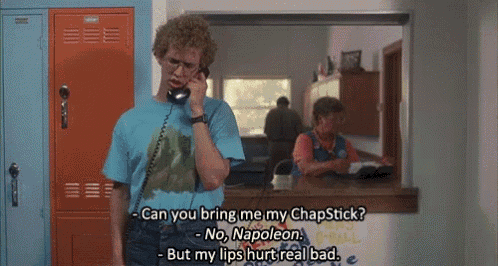
Are there special techniques you use to care for and condition your voice?
Not really… from my singing days, I remember all my fellow singers going on about various remedies, sucking on lemons, ginger tea, throat sprays… but I mostly just focus on mind-body connection and hydration. I guess all the years of classical singing & formal lessons did make a lot of things just second-nature (posture, breathing, etc.) but it really comes down to hydration and focus, for me. I’ve had a few days where I recorded for 8ish hours and then finished the day by singing karaoke online for another couple of hours. Of course, I also listen to my body and don’t push it; if I’m feeling even a hint of vocal strain that doesn’t resolve with hydration, I take a break.
What do you love most about narrating audiobooks?
What’s not to love?! Modern narrators who record from home studios are not “just” narrating: we’re doing several jobs simultaneously: acting (which in itself entails hundreds of little decisions, every single page), self-directing, self-editing, monitoring, and audio engineering. It takes a huge amount of attention and stamina, and it’s the hardest work I’ve ever done, but I also love it more than anything. I love the constant challenge, the variety (I’ve narrated everything from erotica to nonfiction to young adult clean romance, to middle-grade fiction, and more) – I love that each book is a new adventure and that I learn something new from every single project, and each book is its own growth experience in itself.
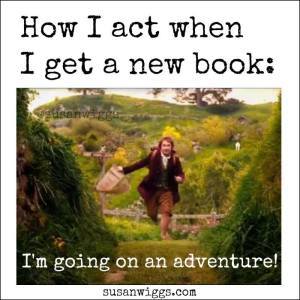 Every book really is an adventure!
Every book really is an adventure!Where can we go to learn more about your work or contact you for our future voice talent needs?
My website is www.allusionsaudios.com or www.jessaudios.com – I haven’t been as active on social media in 2023, but that may change as 2024 progresses. For the last year, I’ve wanted to spend the bulk of my time and attention on just doing the work. I’ve also been coaching, always working on gaining new skills and deepening old ones, and loving this ever-developing adventure 
Thanks, Jessica, for the interview and for taking so much care in narrating A River of Crows!
And thanks to everyone who took the time to read this interview. Be sure to head on over to the audiobook retailer of your choice and download A River of Crows to hear Jessica in action!

May 20, 2023
Songs and Storytelling
Last week my husband and I watched the ACM awards and were glad to see Hardy and Lanie Wilson win an award for Music Event of the Year with their song, Wait in the Truck, a powerful story of domestic violence and vigilante justice.

That got us talking about songs that tell great stories. Not all songs are narrative based or have a linear storyline, many focus more on expressing emotions or abstract ideas. However, I’ve always been drawn to ones that follow a traditional story arc, and I suspect that’s one reason I’ve always loved country music. I know it gets a bad rap because of some overused tropes in the genre (tractors, tailgates, cut off shorts, etc. etc.), but there are so many creative country songs that don’t deserve all the hate heaped on the genre.

Country music’s roots are deeply embedded in folk traditions, and folk music is often passed down orally. One integral part of folk music are songs known as murder ballads.
Murder ballads date back to medieval times, but gained popularity in the US during the Appalachian folk revival in the early 20th century. As their name suggests, murder ballads revolve around acts of violence, betrayal, and tragic love. Many narrated infamous true crime cases. These songs often highlight the complex motivations of the perpetrators, the suffering of the victims, and the moral dilemmas faced by those involved.
Like the thriller genre of books I read and write, murder ballads tap into our fascination with the darker aspects of human nature. They explore the depths of our emotions, allowing us to experience fear, empathy, and curiosity from a safe distance. Not to mention, murder ballads often feature haunting melodies that perfectly complement the eerie tales they convey.
As time passed, murder ballads have continued to evolve and find their place in contemporary music. Though I didn’t know it at the time, many of my favorite songs growing up were in fact murder ballads. (And this probably surprises no one).
Remember all the controversy over the Garth Brooks’ hit, The Thunder Rolls. Many radio stations refused to play the song, and the video was actually banned from CMT.
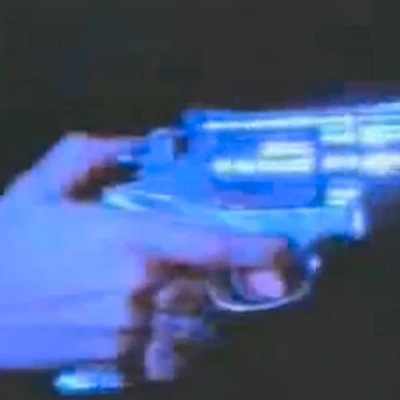 If you know, you know…
If you know, you know…I remember renting a VHS of Garth’s music videos from Hastings, and watching the video for the first time with my parents. As a writer, I constantly find myself saying, “What a great line,” when watching tv, reading, or listening to music, and I remember saying that to myself as a nine-year-old hearing the chilling line, “and the lightning flashes in her eyes and he knows that she knows.” Looking back, I’m not totally sure how a third grader who knew nothing of infidelity and murder was really able to appreciate that good writing, but I did. There should never have been any doubt to my parents that I’d grow up to write a book like A River of Crows.

Though Garth took a lot of heat for that video, it paved the way for Martina McBride’s huge hit Independence Day that would be aired on CMT without incident three years later.
Another favorite murder ballad of mine that I did mention in A River of Crows is The Night the Lights Went out in Georgia. It’s been over thirty years since I first listened to it, and it’s still one of the best stories I’ve ever heard— affairs, murder, a wrongful conviction, a killer who was never caught, a crooked justice system, and a great twist of an ending. As someone who is very wordy, I’m amazed a story like that can be told in four minutes time. It would take me an entire book.
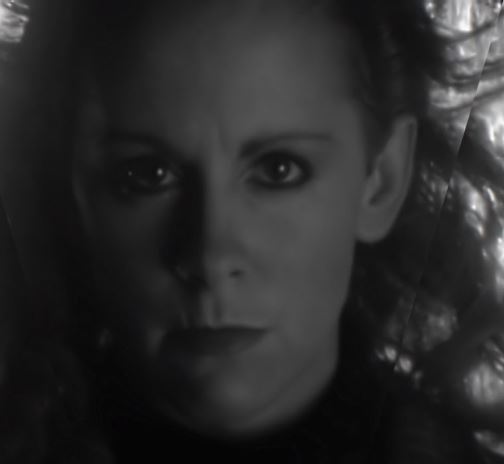 “That’s one body that will never be found.”
“That’s one body that will never be found.”
There are plenty of other examples of murder ballads in country music. Carrie Underwood and Johnny Cash come to mind when I think about singers with a lot of lyrical blood on their hands.

A great country storytelling song that I loved in my young adult years was Whisky Lullaby. Though not exactly a murder ballad, the song tells the tragedy of a couple whose breakup leads them both down sad paths with the same end as they drink themselves to death. Gentle and ominous vocals combined with a haunting melody easily makes it one of the saddest songs I’ve ever heard.

It should be noted that not all songs that tell a great story are depressing. Goodbye Earl is a murder ballad, but a really catchy and fun one. Still, it should be noted, that many country stations refused to play it when it released as well. I still love to listen to it and it’s my favorite hashtag to send my girlfriends when their husbands do something stupid. (Delete this paragraph after reading. Thanks.)

What about you? What are the best stories you’ve heard in song form?
April 24, 2023
A River of Crows: Guest Post


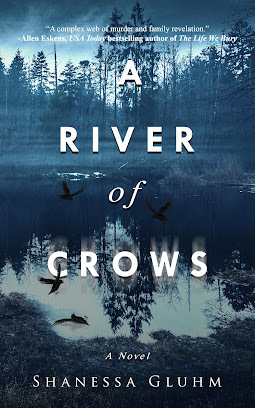
In 1988, Sloan Hadfield’s brother Ridge went fishing with their father and never came home. Their father, a good-natured Vietnam veteran prone to violent outbursts, was arrested and charged with murder. Ridge’s body was never recovered, and Sloan’s mother— a brilliant ornithologist— slowly descended into madness, insisting her son was still alive.
Now twenty years later, Sloan’s life is unraveling. In the middle of a bitter divorce, she’s forced to return to her rural Texas hometown when her mother is discharged from a mental health facility.
Overwhelmed by memories and unanswered questions, Sloan returns to the last place her brother was seen all those years ago: Crow’s Nest Creek. There, she is shocked to hear a crow murmuring…
View original post 1,009 more words
March 4, 2023
A River of Crows-Indies Today Review
I’m thrilled to share another wonderful editorial review for A River of Crows, courtesy of Jennifer Jackson for Indies Today.

When Sloan left the backwater town of Mallowater, Texas, in her rearview mirror, she had no intention of returning home. Ever. And it’s hard to blame her. Twenty years ago was the beginning of the end for her family. Her good-natured little brother was forced under the unforgiving waters of Crow’s Nest Creek, a crime too horrible to contemplate. The death of a family member is devastating on its own, but when her beloved father is named the murderer, devastating is no longer an adjective powerful enough to describe the depths of Sloan’s anguish. Her mother, stuck in her own unrelenting loop of grief and anger, becomes unstable and unreliable, leaving young Sloan to deal with the loss of her family all by herself. Though her brother’s body was never found, there were plenty of horrific discoveries in the wake of his death that left Sloan at the center of a small-town scandal.
Now, some two decades separate her from that fateful day, yet her circumstances haven’t improved much. A call from an old friend forces Sloan back home to Mallowater to deal with her mother’s escape from a psychiatric hospital. A newly minted divorcee herself, Sloan has to face the emotional impact of a failed marriage while at the same time reliving the trauma of losing her brother, her family, and the innocence of her childhood.
As riveting a prologue as modern fiction has ever seen, A River of Crows hits the ground running and never stops to come up for air! Besides a cast of relatable characters, a condensed education on crow behavior, and a string of narrative bombshells, the author packs even more of a literary punch with some brilliant metaphors that will leave a lasting impression on the hearts and minds of readers.
Shaped by a childhood whose memories have been forged in a vortex of grief, Sloan is stuck in the dangerous rut of always anticipating the next setback, the next call with bad news, the next adversity. The supporting cast is not left unscathed by tragedy either, so the themes of resilience and persistence conjure a positive undercurrent that acts as a balanced contrast. Dramatic hooks at the end of each chapter will compel you to keep in step with Sloan, even if it means reading until the sun comes up.
Like the tumultuous river flowing at the center of this gripping tale, Shanessa Gluhm has crafted a pulsating story that is just waiting to pull you into its chilling depths and slowly reveal all its darkest secrets.
https://indiestoday.com/a-river-of-crows-by-shanessa-gluhm/
February 25, 2023
A River of Crows-Lone Star Literary Life Review
Very proud to share the latest editoral review courtesy of Lone Star Literary Life.
“It was cruel how tears never ran out. How the body was capable of producing them forever and ever and ever.”
Parents and other adults are supposed to protect and nurture children, not use them as pawns or as a means to an end. A River of Crows by Shanessa Gluhm is a profound glimpse into a family’s disastrous spiral into betrayal, manipulation, and death. In 1988, twelve-year-old Sloan Hadfield and her ten-year-old brother, Ridge, are growing up in a typical household. Two parents, Caroline and Jay, and two kids, Sloan and Ridge, live in a modest home in a small Texas town. Nothing extraordinary about this family until the lies, hidden for years, spill forth and shatter the façade, resulting in a flood of tragedy, secrets, and mental degeneration.
Gluhm delivers an amazing tale of heartbreak when the treachery becomes too much to bear, culminating in bitterness and revenge that harm both the guilty and the innocent. A major plot twist slowly begins to build as early as the prologue, with the entire truth and ultimate retaliation eventually revealed to both the characters and the readers much later. How could everything go so terribly wrong in such a seemingly happy household?
In A River of Crows, the tone is often bleak and distressing but never uninteresting. The overall pace is moderate, allowing the reader to settle into Sloan’s third-person narrative about the events in 1988 and the current events in 2008. A few chapters later, however, the story switches, providing a peek into her mother Caroline’s feelings and justification and ultimate confusion and despair. What is a mother to do when her husband has secrets and is then accused and convicted of killing their son? How is Sloan supposed to cope and carry on without her little brother, with her father in prison, and with her mother mentally and physically slipping away?
With exquisite storytelling, the author keeps the reader believing that this is a cut-and-dried story of murder and simply about a catastrophe ripping a family apart. And it is, but not without smoke and mirrors and a few red herrings –or in this case, crows– along the way. Crows play a major role in this story, both literally and figuratively. Caroline, a budding ornithologist before her marriage, tells her children many stories about crows and their behaviors and patterns. While Sloan is only mildly interested at best, Ridge is obsessed with the crows and always wants to watch them roost in the trees along the river near their home. Crows are intelligent and often seen as mediators between the living and the dead; they can symbolize transition or change as well, especially when they arrive in large numbers: a murder of crows. While a few clues point to Ridge’s drowning, the body is never found, but the crows know what happened in the river back in 1988. Other people know the truth too. As the story progresses, facts and new developments become surreal and complex and quickly unravel into a dark, cautionary tale, filled with misdirection, deception, evil, and all-consuming love.
Shanessa Gluhm, with literary panache, expertly shows what happens when a family strays from respect and honesty, with the consequence of it all, as dark as a crow’s wing, unfurling, touching, and changing everything and everyone in its path.
https://www.lonestarliterary.com/content/lone-star-indie-review-river-crows
December 9, 2022
A River of Crows-Midwest Book Review
I’m honored to share the first editorial review for A River of Crows, courtesy of D. Donovan, Senior Reviewer at Midwest Book Review:
A River of Crows demonstrates that the impact of a child’s disappearance never goes away. Also vanished is the family structure and support system that dissolves under the pressure of a mystery that affects everyone.
Sloan’s brother Ridge went fishing with their father and never returned. Her emotionally unpredictable Vietnam vet father, the suspect in his son’s disappearance, is arrested and charged with murder. Her mother, torn by these events, has fallen into madness.
Twenty years later, Sloan herself is in the middle of a divorce and still struggles with the question of what really happened to her brother. And her family.
Her decision to return to the scene of the possible crime, Crow’s Nest Creek, leads to a strange encounter with a crow. That together with the appearance of the body of another boy lead Sloan into a determination to uncover the truth. Even if it kills her.
Shanessa Gluhm crafts a thought-provoking story of revelation, family ties, discovery, and murder. She injects nuggets of wisdom into the tale from the start, spicing it with revelations about life, optimism, and adversity: “No marriage is unraveled by pulling a single thread. Just like no family is. Sloan understood that all too well.”
Living up to its initial promise, A River of Crows pulls on many disparate threads of experience and possibility that then take unusual turns. As the plot to destroy a family thickens, a cast of characters participate in events that lead to both an inevitable outcome and an unusual twist on predictability. This approach keeps readers thoroughly engrossed in the psychological dynamics of evolving possibilities.
When events move into a trial that tests love and survival abilities alike, Sloan finds the courage to not only discover what really happened, but revise her ideals of family, friends, and forgiveness.
Readers who choose A River of Crows for its mystery will find an unexpected draw and value in the emotional components which keep the plot action-packed and charged with transformation.
Libraries that choose A River of Crows for their collections will find it lends particularly well to book club discussions about family ties and how to rise and recover from the ashes of devastating loss.
October 15, 2022
Ten Dark Fall Reads
I love Halloween and all things scary. R.L. Stine introduced me to the horror genre in my elementary school library, and by the time I graduated high school, I’d read every Stephen King book in our public library. Now, I find myself more enticed by eerie and atmospheric books rather than strictly horror. For me, there is no better time to curl up with a good creepy book than fall.
Here are my suggestions for my favorite spooky reads.
10. The Whisper Man by Alex North
“Over the years I’ve told you many times that there’s no such thing as monsters.
I’m sorry that I lied.“
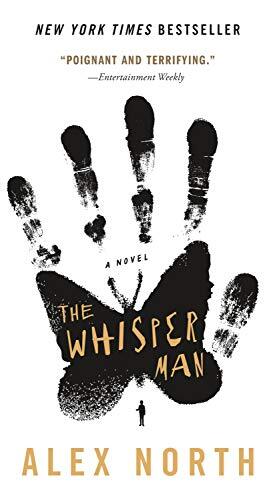
Why I loved it:
I don’t scare easily, but this book was so unsettling. It will make you double check if your doors are locked and check on your kids in the middle of the night. Mystery/suspense meets police procedural with a tinge of horror. The character development was fantastic, and I loved the multiple viewpoints. And the author’s note at the end about what inspired the book was perhaps the creepiest part of all.
About the book:
After the sudden death of his wife, Tom Kennedy believes a fresh start will help him and his young son Jake heal. A new beginning, a new house, a new town: Featherbank.
But Featherbank has a dark past. Twenty years ago, a serial killer abducted and murdered five residents. Until Frank Carter was finally caught, he was nicknamed “The Whisper Man,” for he would lure his victims out by whispering at their windows at night.
Just as Tom and Jake settle into their new home, a young boy vanishes. His disappearance bears an unnerving resemblance to Frank Carter’s crimes, reigniting old rumors that he preyed with an accomplice. Now, detectives Amanda Beck and Pete Willis must find the boy before it is too late, even if that means Pete has to revisit his great foe in prison: The Whisper Man. And then Jake begins acting strangely. He hears a whispering at his window
9. Daisy Darker by Alice Feeny
“Families are like fingerprints; no two are the same, and they tend to leave their mark.”
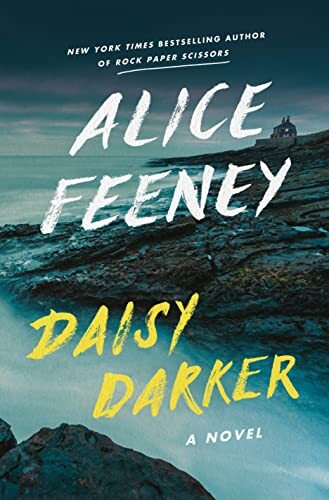
Why Ioved it:
I love books that begin with a map of an old home. Seaglass house and the island it sits on (with tides making it impossible to leave at certain times) made the most perfect setting for a locked room mystery ever. This book is certainly a nod to And Then There Were None by Agatha Christie. Like all Feeny novels, the big twist (which had nothing to do with who the killer was) was completely brilliant and unexpected. I’d really like to read the book again now that I know the truth and see what all I missed.
About the book:
After years of avoiding each other, Daisy Darker’s entire family is assembling for Nana’s 80th birthday party in Nana’s crumbling gothic house on a tiny tidal island. Finally back together one last time, when the tide comes in, they will be cut off from the rest of the world for eight hours.
The family arrives, each of them harboring secrets. Then at the stroke of midnight, as a storm rages, Nana is found dead. And an hour later, the next family member follows…
Trapped on an island where someone is killing them one by one, the Darkers must reckon with their present mystery as well as their past secrets, before the tide comes in and all is revealed.
With a wicked wink to Agatha Christie’s And Then There Were None, Daisy Darker’s unforgettable twists will leave readers reeling.
8. Chapel Street by Sean Paul Murphy
“In the back of my mind, I hoped whatever drew me to the grave would release me once the pictures were taken. That wasn’t the case.”
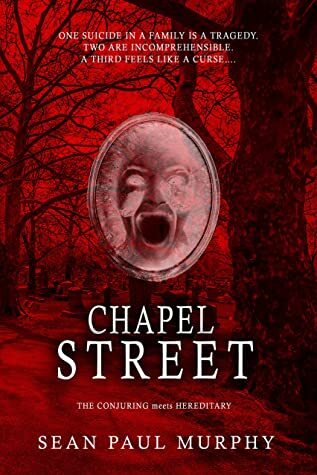
Why I loved it:
Chapel Street is a truly chilling book by a fellow TouchPoint Press author, Sean Paul Murphy. I was interested in this book well before it came out after learning the history of the true haunting it was based on. This book is so atmospheric and creepy. Betty not only followed Rick from that graveyard; she followed me too. I also really enjoyed the elements of spirituality interwoven within the narrative. A deeper story with far more layers than most horror stories I’ve read.
About the book:
Rick Bakos never had a chance at happiness. After enduring the tragic death of his father in a car accident, Rick grew up to helplessly watch both his older brother Lenny and his mother Agnes succumb to madness and suicide. Nor were they the first members of his family to kill themselves. Suicide has steadily stalked the Bakos family since they first arrived in Baltimore from Bohemia at the turn of the 20th Century.
Turning to genealogy to better understand his self-destructive family, Rick works as a volunteer for the website RestingPlace. After photographing the grave of Betty Kostek for the webpage, Rick finds himself drawn into a maelstrom of horror. Each night he finds himself inexorably drawn closer to self-destruction.
Rick’s only ally is a fellow volunteer named Teri Poskocil. She, too, has fallen under the suicidal spell of the late Betty Kostek. The couple soon discovers their pairing wasn’t a coincidence. Their great-grandparents were next door neighbors on Chapel Street nearly a century earlier. So were Betty’s grandparents.
Together Rick and Teri must solve the mystery of Chapel Street before they find death at their own hands.
7. The Death of Mrs. Westaway by Ruth Ware
“Never believe it, Hal. Never believe your own lies.”
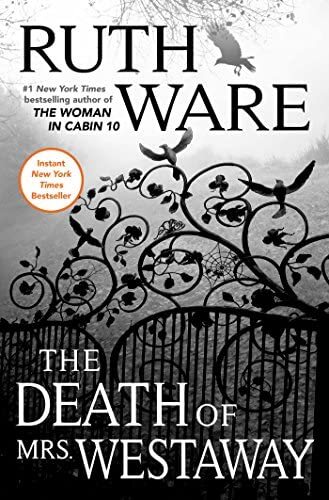
Why I loved it:
I adore every book Ruth Ware writes, but this one was her best. I’m drawn to books that deal with dark family secrets. Add in a dark creepy house, and a menacing gothic atmosphere, and you’ve got a book I’m guaranteed to love. It was so cleverly plotted with hints of Jane Eyre and Rebecca. Ware is a master of setting tone and of slow burning suspense.
About the book:
On a day that begins like any other, Hal receives a mysterious letter bequeathing her a substantial inheritance. She realizes very quickly that the letter was sent to the wrong person—but also that the cold-reading skills she’s honed as a tarot card reader might help her claim the money.
Soon, Hal finds herself at the funeral of the deceased…where it dawns on her that there is something very, very wrong about this strange situation and the inheritance at the centre of it.
6. Rebecca by Daphne Du Mauier
“The road to Manderley lay ahead. There was no moon. The sky above our heads was inky black. But the sky on the horizon was not dark at all. It was shot with crimson, like a splash of blood. And the ashes blew towards us with the salt wind from the sea.”
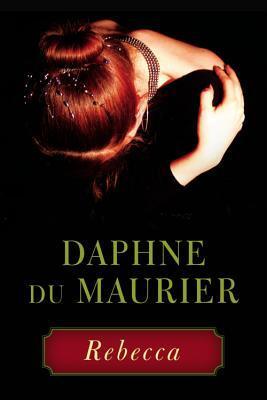
Why I loved it:
“Last night I dreamt I went to Manderley again…” is one of the more famous first lines from literature, and it sets the tone for a perfect gothic suspense novel. Rebecca is the original domestic noir that I appreciate more each time I read it. It’s a story dominated by memory, so much so that we never even learn the name of our main character. The tension builds as the walls close in. The strong imagery and lyrical writing transported me to another place and time. No wonder so many of us find ourselves returning to Manderley.
About the book:
Ancient, beautiful Manderley, between the rose garden and the sea, is the county’s showpiece. Rebecca made it so – even a year after her death, Rebecca’s influence still rules there. How can Maxim de Winter’s shy new bride ever fill her place or escape her vital shadow?
A shadow that grows longer and darker as the brief summer fades, until, in a moment of climatic revelations, it threatens to eclipse Manderley and its inhabitants completely.
5. The Family Upstiars by Lisa Jewell
“It’s very strange, looking back, how accepting children can be of the oddest scenarios.”
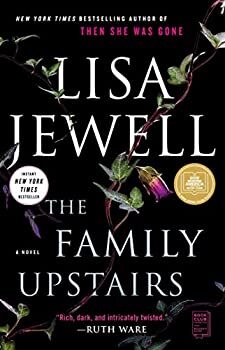
Why Ioved it:
I love gothic fiction and psychological suspense, and this book blended them perfectly. The story and characters were dark and creepy, but fascinatingly so. Twisted doesn’t even begin to describe this family. I loved the three points of view and thought they were used expertly to weave the story together. I worried this thriller was going to be wrapped up too neatly, but then Jewell threw in an implied ending that I thought was perfection.
About the book:
Soon after her twenty-fifth birthday, Libby Jones returns home from work to find the letter she’s been waiting for her entire life. She rips it open with one driving thought: I am finally going to know who I am.
She soon learns not only the identity of her birth parents, but also that she is the sole inheritor of their abandoned mansion on the banks of the Thames in London’s fashionable Chelsea neighborhood, worth millions. Everything in Libby’s life is about to change. But what she can’t possibly know is that others have been waiting for this day as well—and she is on a collision course to meet them.
Twenty-five years ago, police were called to 16 Cheyne Walk with reports of a baby crying. When they arrived, they found a healthy ten-month-old happily cooing in her crib in the bedroom. Downstairs in the kitchen lay three dead bodies, all dressed in black, next to a hastily scrawled note. And the four other children reported to live at Cheyne Walk were gone.
The can’t-look-away story of three entangled families living in a house with the darkest of secrets
4. We Are All the Same in the Dark by Julia Heaberlin
“Loving dark men is a seesaw. They never tell you everything. You always wonder if the tiny red spot on a shirt is really from a spaghetti dinner like they claim. But then they put a bird back in a nest. They pull a drowning kid out of the water. And that’s all it takes. The spaghetti is not blood.”

Why I loved it:
A slow burning, twisted Texas mystery that is disquieting, creepy, and a bit morbid. This book is dark and ominous from beginning to end, and the tension builds page by page. I loved the eloquence of the writing, the grittiness and depth of the characters, and the truly stunning twists. I found a new favorite author in Heaberlin and rushed to buy her backlist after finishing this one.
About the book:
It’s been a decade since Trumanell Branson disappeared, leaving only a bloody handprint behind. Her pretty face still hangs like a watchful queen on the posters on the walls of the town’s Baptist church, the police station, and in the high school. They all promise the same thing: We will find you. Meanwhile, her brother, Wyatt, lives as a pariah in the desolation of the old family house, cleared of wrongdoing by the police but tried and sentenced in the court of public opinion and in a new documentary about the crime.
When Wyatt finds a lost girl dumped in a field of dandelions, making silent wishes, he believes she is a sign. The town’s youngest cop, Odette Tucker, believes she is a catalyst that will ignite a seething town still waiting for its own missing girl to come home. But Odette can’t look away. She shares a wound that won’t close with the mute, one-eyed mystery girl. And she is haunted by her own history with the missing Tru.
Desperate to solve both cases, Odette fights to save the lost girl in the present and to dig up the shocking truth about a fateful night in the past–the night her friend disappeared, the night that inspired her to become a cop, the night that wrote them all a role in the town’s dark, violent mythology.
3. The Shining by Stephen King
“Monsters are real. Ghosts are too. They live inside of us, and sometimes, they win.”
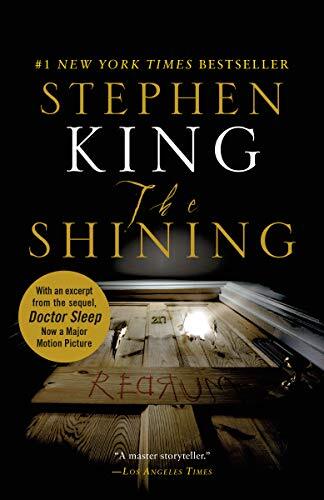
Why I loved It:
What kind of list would this be without a book by the master of horror, Stephen King? The Shining is a classic haunted house story that has captivated readers for almost fifty years. Though many of King’s stories have made me lose sleep, none more so than The Shining. I love books with a building sense of unease, and nobody writes better suspense than King. Beyond the horror of the story, there is fantastic characterization and underlying emotional content that makes it stand out from most books in the genre.
About the book:
Jack Torrance’s new job at the Overlook Hotel is the perfect chance for a fresh start. As the off-season caretaker at the atmospheric old hotel, he’ll have plenty of time to spend reconnecting with his family and working on his writing. But as the harsh winter weather sets in, the idyllic location feels ever more remote…and more sinister. And the only one to notice the strange and terrible forces gathering around the Overlook is Danny Torrance, a uniquely gifted five-year-old.
2. Rock, Paper, Scissors by Alice Feeny
“The reason why a person lies is almost always more interesting than the lie itself.”

Why I loved it:
Alice Feeney makes the list a second time for my favorite of her novels, Rock Paper Scissors. I was duped by this book in the best possible way. I love unreliable and cunning characters, and the twist was mind blowing. There was so much building tension in this thriller that I couldn’t put it down. And really, is there a more terrifying question than, “How well do you really know the one you love?”
About the book:
Things have been wrong with Mr and Mrs Wright for a long time. When Adam and Amelia win a weekend away to Scotland, it might be just what their marriage needs. Self-confessed workaholic and screenwriter Adam Wright has lived with face blindness his whole life. He can’t recognize friends or family, or even his own wife.
Every anniversary the couple exchange traditional gifts – paper, cotton, pottery, tin – and each year Adam’s wife writes him a letter that she never lets him read. Until now. They both know this weekend will make or break their marriage, but they didn’t randomly win this trip. One of them is lying, and someone doesn’t want them to live happily ever after.
Ten years of marriage. Ten years of secrets. And an anniversary they will never forget.
Lock Every Door by Riley Sager“That can be said of certain places. The closer you get to them, the uglier they become.”
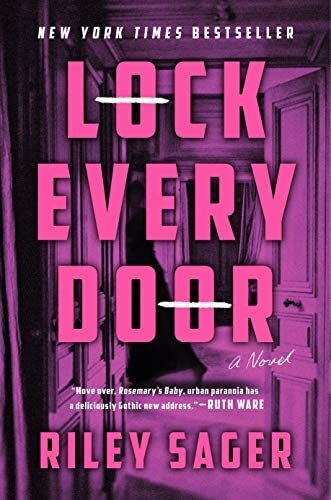
Why I loved it:
Riley Sager is one of the leading names in modern horror, and Lock Every Door is his best book in a line of great ones. Modern gothic suspense with an eeriness that was palpable. I couldn’t stop reading. This smart thriller went in a direction I never could have predicted. The twist was so bizarre and brilliant, and I find myself thinking about it often. I can’t imagine this book ever being topped in my mind when I think about truly spooky reads.
About the book:
No visitors. No nights spent away from the apartment. No disturbing the other residents, all of whom are rich or famous or both. These are the only rules for Jules Larsen’s new job as an apartment sitter at the Bartholomew, one of Manhattan’s most high-profile and mysterious buildings. Recently heartbroken and just plain broke, Jules is taken in by the splendor of her surroundings and accepts the terms, ready to leave her past life behind.
As she gets to know the residents and staff of the Bartholomew, Jules finds herself drawn to fellow apartment sitter Ingrid, who comfortingly reminds her of the sister she lost eight years ago. When Ingrid confides that the Bartholomew is not what it seems and the dark history hidden beneath its gleaming facade is starting to frighten her, Jules brushes it off as a harmless ghost story…until the next day, when Ingrid disappears.
Searching for the truth about Ingrid’s disappearance, Jules digs deeper into the Bartholomew’s sordid past and into the secrets kept within its walls. What she discovers pits Jules against the clock as she races to unmask a killer, expose the building’s hidden past, and escape the Bartholomew before her temporary status becomes permanent.
What about you? What are your favorite dark and spooky books?
March 25, 2022
My Ten Favorite True Crime Podcasts
I’ve been on a true crime binge recently.
 Rule Number 1: It’s always the husband.
Rule Number 1: It’s always the husband.Okay, I’ve actually been on a true crime binge my entire life (thanks Unsolved Mysteries), but I’ve recently gotten really into podcasts. As much as I love a good true crime documentary, by not requiring visual attention, podcasts allow me to get my true crime fix while doing boring things like cooking, cleaning or driving.
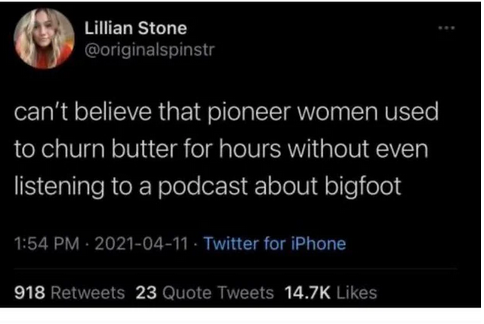
There are SO many podcasts out there that it can be overwhelming to choose. I’ve listened to a lot that I abandoned either from lack of interest or because the host’s voice or style got on my nerves. 
BUT here are ten true-crime podcasts that have hooked me!
1. My Favorite Murder
For me, it doesn’t get any better than MFM. It’s perfection. I was hesitant to start this one because I kept hearing how funny it was, and I wasn’t sure laughs went with true crime. I was wrong. The show works. It just works.
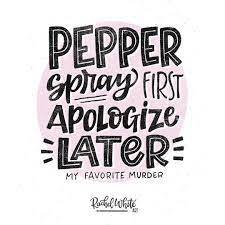
I was hooked from the first episode and have listened to over 250 now, with plenty left to go. Any time my family or friends tell me about some true crime story, I almost always know about it from my year long My Favorite Murder binge.
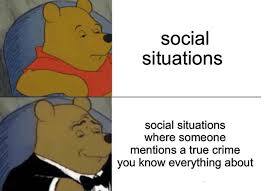
Karen and Georgia, if you ever need a third host, look me up.
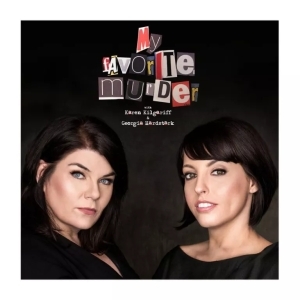 I also have dark hair, like to wear black, and discuss true crime….
I also have dark hair, like to wear black, and discuss true crime….2. Down The Hill: The Delphi Murders
I think every true crime aficionado has a cold case they most want solved. For me, it’s the Delphi Murders.
This podcast breaks down the tragic, still unsolved murder of two Indiana teens, and the story has left me with SO many questions. Despite having a video and audio clip of the likely killer on one of the victim’s phones, no one has been charged with their murder. The police seem to be holding their cards close on this one, and I can only hope it’s because they are close to solving the case.
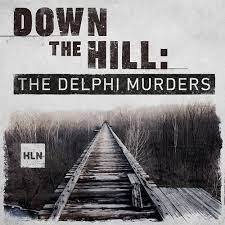 Go listen now!
Go listen now!3. In The Dark-Season 1
An intricate and in depth look at one of the most notorious child abductions (and botched police investigations) from the ’80s— Jacob Wetterling. This case led to the nation’s sex-offender registries and fueled the “stranger danger” fear many of us grew up with. It’s riveting!
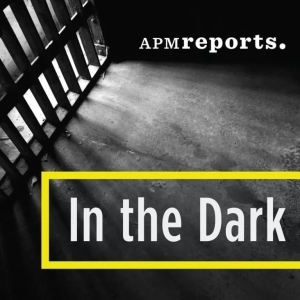
4. CounterClock Season 3
In 1989, a minister, his wife, and their two youngest daughters were brutally murdered in their own home. The three oldest children were gone for the evening. Eventually, the pastor’s then 17-year-old son was charged with the crime. Motive? He wanted to go to prom and his dad said no. Sound flimsy to you too? As you might suspect, this was a family with secrets that will come to light as you get deeper into the podcast.

5. Jensen and Holes: The Murder Squad
If you don’t want to get invested in a season long saga, and prefer a new story each episode, The Murder Squad is hard to beat. It’s hosted by retired cold case investigator, Paul Holes and investigative journalist, Billy Jensen, both of which you may recognize for helping to crack the case of the Golden State Killer. They are brilliant and shed new light on many cold cases. Fun fact: another cold case has been solved as a result of their show!
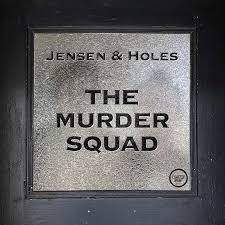
6. Morbidology
Another series that focuses on a different crime each episode, Morbidology is one of most well-researched and well-presented podcasts out there. Using investigative research, 911 calls, interviews, and trial testimony, this podcast gives you all the fascinating details you won’t find anywhere else.
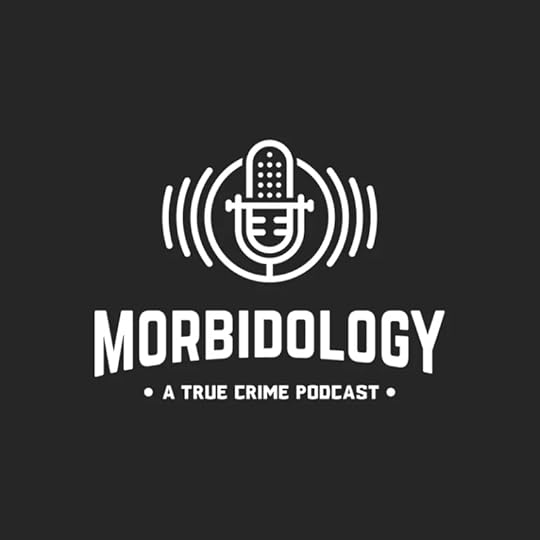
7. Tom Brown’s Body
A popular 16-year-old goes missing in a small Texas town. His body is eventually found and everyone becomes a suspect. There’s nothing better than getting lost in a small town murder mystery, and this one is especially interesting. Five years and countless theories later, there are still no answers.

8. Sweet Bobby
If you want a break from all the murder, listen to Sweet Bobby. This is a catfish story unlike ANYTHING you’ve ever heard. My mouth literally fell open during the reveal episode. Do yourself a favor and go in totally blind. You’ll thank me later.
 I can’t stress enough how mind-blowing this one is…
I can’t stress enough how mind-blowing this one is…9. Someone Knows Something Season 1
In 1972, five-year-old Adrien McNaughton vanished while on a family fishing trip in Ontario. He wandered into the woods and was gone without a trace. The case was never solved. Canadian filmmaker David Ridgen returned to his hometown of Ontario to investigate the case, and the result is this truly haunting podcast.
 A crow and a missing child? You know I’m in.
A crow and a missing child? You know I’m in. 10. Paper Ghosts
This is my current listen, and I’m hooked. Hosted by a true crime writer, M. William Phelps, the first season focuses on four girls who all went missing in the late ’60s and early ’70s in Connecticut. Phelps has a personal connection to these stories having grown up in the area and has been investigating these possibly related cases for ten years.

What am I missing? Leave me your podcast recs in the comments!
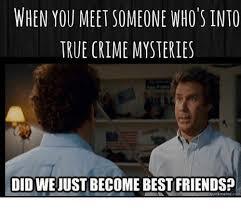
November 23, 2021
Music and Writing
Does music help you write, or do you find that it gets in the way of writing?
I’ve spoken to authors who need complete silence to write, some who want
instrumental music only, and others who have full-blown playlists.
I’m in that third group. I like to have music in the background while I’m
writing. Several studies have recently shown that this is a hindrance to
writing. They found that music causes you to switch your attention back and
forth, and multitasking slows down your ability to process creatively.
But then again, plenty of successful authors write with music playing.
Stephen King listens to Metallica when he writes, Gabriel García Márquez wore
out his Beatles records while penning “One Hundred Years of Solitude,”
and Colson Whitehead (author of “The Underground Railroad”) has a
playlist of 2,000 songs he writes to.

So, are there any positive effects to writing while listening to music? I like to think so.
Music brings back memories. Listening to music lights up the brain’s visual cortex. This means you’ll start associating songs with memories and images almost immediately. So many times, I’ve heard a song on the radio and found myself transported to another place and time. I can literally feel everything that I felt back then. I find this helpful when writing certain scenes.
Studies have also shown that music changes your mood. A McGill University study showed that when subjects listened to music, the same areas of the brain lit up as those when humans experience highly pleasurable things like sex, eating sugary foods, and doing drugs.
What’s that saying about sex, drugs, and rock’n’roll? 
In short, writing is not all about productivity. Music opens up feelings. Certain songs help stir up emotions which is typically when inspiration arises for me.
 Actual footage of me listening to Taylor Swift
Actual footage of me listening to Taylor SwiftI recently spoke to an author who listens to one song, and one song only, the entire time she writes a book. She told me after a while it becomes white noise, which makes sense. Another study (On Repeat: How Music Plays with the Mind) found that listening to a song repeatedly actually makes you more focused and leaves you distraction-free.

I wrote a majority of my first draft for Enemies of Doves on various park benches in my hometown when I was a stay-at-home mom to a toddler. So, it was never quiet. I also had a few late-night sessions at my kitchen table, especially when I was editing. I mostly listened to ’90s country on Pandora since half of the book was set in 1991. Those songs took me back to my own summers in Carthage, Texas and helped bring emotion and memories into my writing.
When I got stuck on some of the ’40s scenes, I usually turned to Billie Holliday. That’s how “I’ll Be Seeing You” ended up as the song Lorraine and Joel shared a dance to.
I made a playlist after the book was over for a blog tour I was on. I included a few ’40s hits, the ’90s songs that I remembered giving me the greatest inspiration while I wrote, and a few extras that had special meaning too.
Cam’s song “Burning House” was not ’90s country at all, but the first time I heard it was right after I started the book, and it made me think of Lorraine and the helplessness she felt trying to help Clancy after the war.
Spoiler Alert. If you haven’t read Enemies of Doves skip the next paragraph.
Another important song for Enemies of Doves was “Let it Go” by James Bay. I really struggled writing the final scene where Lorraine visits Clancy in prison. That scene had been building in the back of my mind since I wrote the first words of the story, but I got stuck when it came time to actually write it. I was getting tired of the ’90s country, so I switched to a different Pandora station, one with modern hits. The first song that came on was “Let it Go” by James Bay, and it just felt so perfect. A song about two people who love each other, but know their relationship can’t work. Hearing it unleashed the words inside me.
I listened to that single song on repeat for that entire chapter, and every time I edited it. When I was writing about Lorraine getting that final letter from Clancy the night she and Joel left town, the lyric, “Let the ashes fall, forget about me,” came on, and I couldn’t stop crying. I, to this day, still tear up when I hear that song.
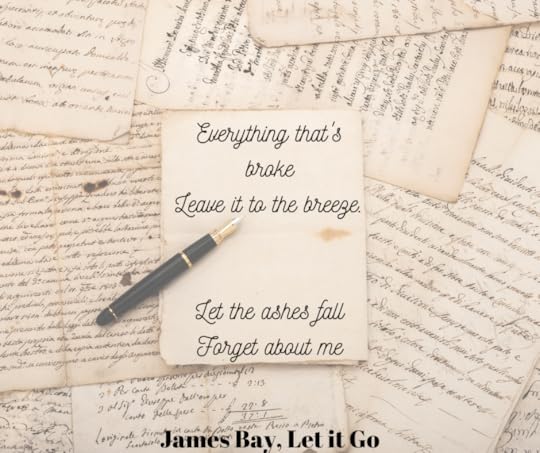
For A River of Crows, it was a well-timed Keith Whitley song coming on the radio just as I drove by a creek in Texas that inspired the entire idea. He’s never been my favorite artist, it wasn’t my favorite song of his, but for some reason, it birthed an idea that wouldn’t let go. So, as you can imagine, Keith’s music filled much of my playlist for book two and inspired some of the plot as well. I was listening to my Spotify playlist for my new book last week, and I guess I burned through to all the songs, so Spotify started playing suggestions. One of them was a Keith Whitley song, and I instantly stopped writing because my brain was trying to take me back to A River of Crows and those characters. It was bizarre honestly. I felt like a writer’s version of Pavlov’s dog.
For A River of Crow’s playlist, I added some ’80s country and pop songs along with a few 2008 hits (the year half of the story takes place in). I also included many angry revenge songs. If JT was crying a river, Alanis was screaming her anthem of post break up rage, or Carrie Underwood was keying someone’s car, I was there for all of it.

Like Enemies of Doves, there were a few random songs that brought inspiration for one reason or another including Eric Church, who is one of my favorite singer/songwriters. His song “Hell of a View” came out, and since I had a character who was an artist and one who was a musician, the lyric, “I paint with my old Gibson, you paint your purple sky,” just felt so right. I so associated that song and lyric with the book that I almost ended up with a cover for the book that had a purple sky…almost. (It ended up being my 2nd runner-up, but that’s a blog for way down the road).

Also, like Enemies of Doves, I really struggled writing the ending of A River of Crows. I just wasn’t quite sure what to do with the last scene. I spent two weeks trying to figure it out. Believe it or not, I decided to put on the same song that helped me write the ending of Enemies of Doves, “Let It Go” by James Bay. And a lyric in the song actually gave me the spark of an idea for the final scene. I’m not a superstitious person, but listening to that song may become a tradition when writing the last chapter of all my books.
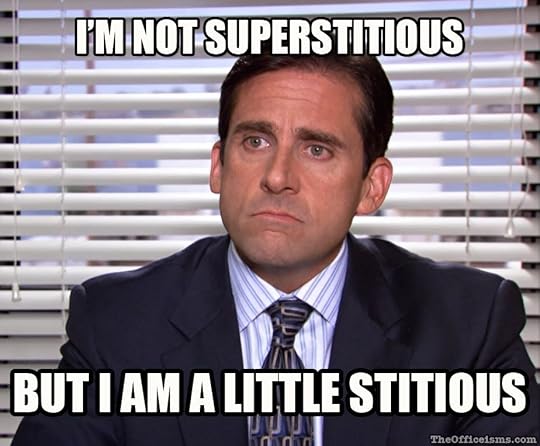
I’m currently writing my first draft for book three, The Bone Nest, and so far, my playlist is full of lots of ’80s pop hits, but a few others with special meaning to the book are making their way onto the list as well. It will evolve as I write and become even longer.
Now, if I had to pick one song for each book, it would be Cam’s “Burning House” for Enemies of Doves, Keith Whitley’s “I’m Over You” for A River of Crows and “Summer of ’69” by Bryan Adams for The Bone Nest.
Fellow writers, I’d love to hear what (if anything) you listen to when you write and what song(s) you associate with your books.
October 30, 2021
A River of Crows News
I’m thrilled on this Halloween Eve to announce that yesterday I signed a contract with TouchPoint Press for my sophomore novel, A River of Crows. Be sure to join my Facebook group Readers Roost to stay up to date on all the latest publishing news, cover reveals, book trailers, etc.
I can’t wait to share this story with you!
 A River of Crows…coming Spring 2023!
A River of Crows…coming Spring 2023!




